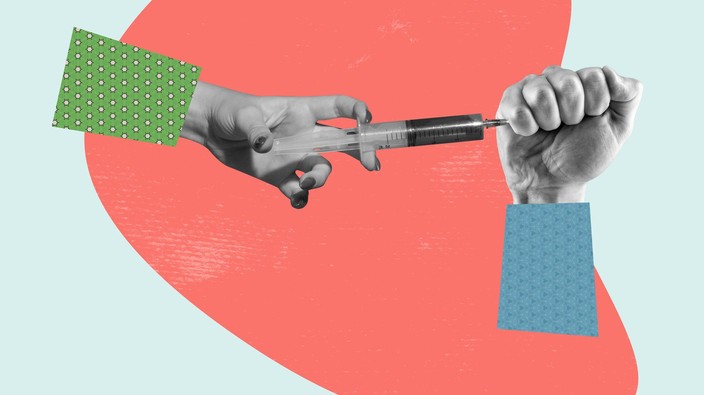vaccine confidence ‘another victim of the covid-19 pandemic,’ study says
we know vaccines work — but people are losing faith in them, despite all the evidence.

a study has found that the lack of confidence in vaccines was observed regardless of the age, gender, religious beliefs, education and ethnicity of respondents. getty
a new study has found that almost 25 per cent of people have lost confidence in vaccines over the past few years despite overwhelming evidence of their effectiveness.
the research, published in the medical journal vaccine, was based on two anonymous surveys of 1,000 adults — one conducted in late 2019, just prior to the pandemic, and the other in 2022. the drop in confidence was observed regardless of the age, gender, religious beliefs, education and ethnicity of respondents.
“while vaccine hesitancy is not a new phenomenon, covid-19 vaccines have been met with particular hostility despite the overwhelming scientific evidence of their safety and effectiveness,” said study co-author alessandro siani of the school of biological sciences at the university of portsmouth. “this isn’t just among conspiracy theorists though, but also those who don’t consider themselves ‘anti-vaxxers’ and had supported other vaccination campaigns in the past.”
participants in the study were asked how much they agreed with a series of statements, including: vaccines are safe; i think vaccines should be a compulsory practice; i believe if i get vaccinated it would benefit the wellbeing of others; and vaccines are a necessity for our health and wellbeing.
advertisement
in both surveys, people with religious beliefs proved to be significantly more hesitant about vaccines than those who were atheist or agnostic. respondents from black and asian backgrounds were also more hesitant than those from white ethnicities.
while many trends remained the same before and after the emergence of covid, the more recent survey revealed that middle-aged adults became considerably less apprehensive about rolling up their sleeves and getting jabbed once the pandemic arrived.
“this could be because covid-19 infections notoriously lead to more severe outcomes in older patients,” siani said. “young people who are infected rarely experience severe symptoms that lead to hospitalization and death, so it’s possible that many have become complacent and don’t feel the need to get vaccinated.
“on the other hand, older people may have been more wary of the consequences of the infection and more appreciative of the protection offered by the vaccine.”
although the research revealed useful information on shifting attitudes toward inoculation, it wasn’t without its limitations. the original study was intended to be a single standalone survey but the necessity for a follow up soon became clear. this required changing a longitudinal study into a cross-sectional one and sampling another anonymous group of 1,000 participants.
advertisement
“we didn’t expect a worldwide pandemic to break out only a few months after carrying out the 2019 survey,” siani said. “because our findings don’t reflect the changing opinions of the same group of people over time — but rather a comparison of responses provided by two different cohorts — they should be interpreted with a grain of salt.
“however, the study is consistent with other observations suggesting that vaccine confidence may be yet another victim of the covid-19 pandemic.”
dave yasvinski is a writer with healthing.ca
thank you for your support. if you liked this story, please send it to a friend. every share counts.
 2 minute read
2 minute read





